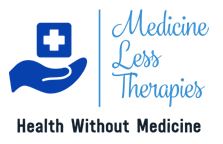- How does your practitioner make an acupuncture diagnosis? You’re lying peacefully on the table with your acupuncture needles, drifting away in relaxation and you wonder, how does she figure out where to put the needles?
- First, you need to have an understanding that in acupuncture diagnosis, we are able to detect imbalances before they become pathological.
- That means you may feel sick or have symptoms but not actually have a disease that a Western medical doctor can diagnose or treat; but luckily your acupuncturist can find the cause of the symptoms you’re having before they turn into a more serious illness.
- So, if your acupuncturist finds a weakness in your Kidneys or your Spleen, it doesn’t mean there is something wrong that will show up on your blood test or a CT-Scan.
- You also should understand that the internal organs in acupuncture diagnosis have similar but not identical functions to what has been identified in the Western science of anatomy and physiology.
- For example, Chinese medicine associates the emotion of anxiety with the Heart; worry with the Spleen; anger with the Liver and so on.
- So, a diagnosis encompasses all levels of body-mind-spirit and is not limited to a physical disease.
- Also, the substances of Qi (Energy), Xue (Blood), Shen (Spirit) and Jing (Ancestral Qi and Substance) play an important role in acupuncture diagnosis.
The Four Examinations:
Looking Diagnosis:
- The acupuncturist first observes the patient, examining their gait, muscle tone, how they move, their skin tone and color, facial expression, emotional expression, behavior and mannerisms.
- She examines the tongue for color, markings and coating, noting the corresponding organ systems that are affected.
- The tongue changes slowly over time and reveals the hidden substances and processes of the body.
Listening Diagnosis:
- The acupuncturist will listen to the patient’s symptoms, medical history, and family health history just as other doctors do.
- But she will also listen to the sound of the patient’s voice and try to hear the underlying sound as it corresponds to the five major yin organs–is it a weeping sound, a singing sound, a groan, a shout, or a flat sound.
- She will also listen to the strength of the voice, its loudness and clarity, and for the moment when the underlying emotion related to the imbalance is revealed.
Smelling and Tasting Diagnosis:
- Your acupuncturist will ask you about your body odors and any tastes you may experience. These can be clues to imbalances in the body.
- In addition, every person has a distinct body odor that corresponds to one of the five basic constitutional diagnoses, much as the sound of the voice as described above.
Touching Diagnosis: Feeling the Pulse
- Feeling and understanding the pulses is an art that is mastered over a lifetime. Your acupuncturist is feeling for the rate, rhythm, strength and presence of six pulses on each wrist.
- But she is also feeling for a particular pulse quality.
- Ancient Chinese medical texts identify 28 major pulse qualities, and there are hundreds to be found in different acupuncture textbooks.
- These pulse qualities reveal the hidden world of the body.
- The pulses change very quickly as opposed to the tongue and therefore give more of an immediate indication of the effect of the treatment.
